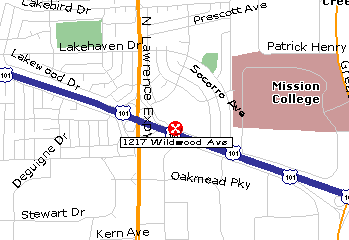IEEE/CPMT Dinner Meeting, in the Santa Clara Valley:
"Kirkendall Voids in Lead-Free Solder Joints: A Reliability Issue"
-- Zequn Mei, Cisco
Presentation Slides: "Voids at the Cu/Solder Interface and Their Effects on Solder Joint Reliability" (1.8 MB PDF)
 Wednesday, September 14, 2005
Wednesday, September 14, 2005
Seated dinner served at 6:30
($25 if reserved before Sept. 11; $30 after & at door;
vegetarian available)
|
|
$25 -- Register & Prepay for dinner in one step from your PayPal account or Credit/Debit Card!
|
Presentation (no cost) at 7:30.
Ramada Inn
1217 Wildwood Ave (Fwy 101 frontage road, between Lawrence Expressway and Great America Parkway), Sunnyvale, (800) 888-3899 -- see map.
PLEASE RESERVE IN ADVANCE --
For dinner and/or meeting: by email to
Janis Karklins
Please reserve for "presentation-only", even if not attending the dinner.
- OVERVIEW:
-
Previous studies demonstrate extensive Kirkendall voids at the interface of a solder joint to a copper substrate, and their significant effects on the impact and shock strength of the solder joints. This talk focuses on two issues: the condition for the void formation; and the effect of voids on solder joint reliability. Samples of electronic assemblies of different packages aged or thermal-cycled were cross-sectioned by either FIB or sputtering etching. The results show that voids at the Cu/solder interface formed extensively in some cases, but not so much in others. So far, we are not clear exactly what factors control the void formation; it seems that the Cu plating process and the small concentration of Ni in either the solder or the substrate influences the void density and distribution. Shock strength at 400G of BGA packages aged for 20 days at 125°C did not degrade; the failure occurred by either delamination at the fiber/resin interface underneath the non-solder-mask-defined Cu pads, or inside the solder where they were close to the solder-mask-defined Cu pads. We also curve-fitted the result of voids growth vs time at different temperatures, to use it for prediction of the voided area at the product's service condition.
- Speaker Biography:
-
Zequn Mei
received his Ph.D. of Materials Science and Engineering from University of California at Berkeley. He is currently working at Cisco Systems, in the Manufacturing Technology Goup, on interconnect reliability.
If you are not on our Chapter's regular email distribution list
for meeting anouncements, you can easily be added!
Please send an Email to
Paul Wesling
and let me know you'd like email distribution.
Last updated on

 Wednesday, September 14, 2005
Wednesday, September 14, 2005